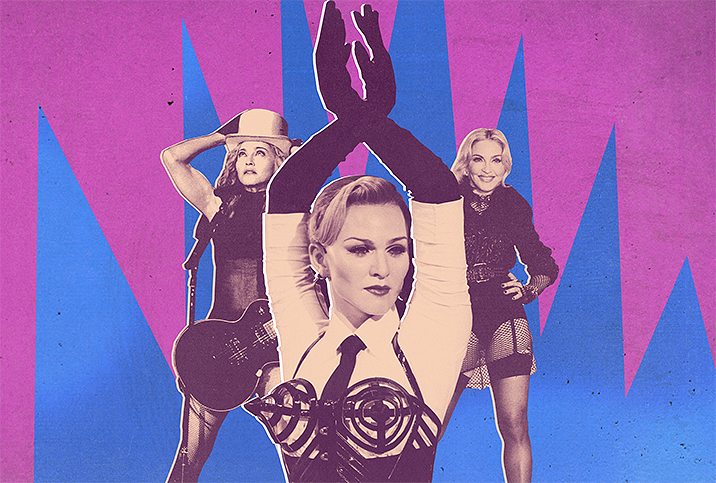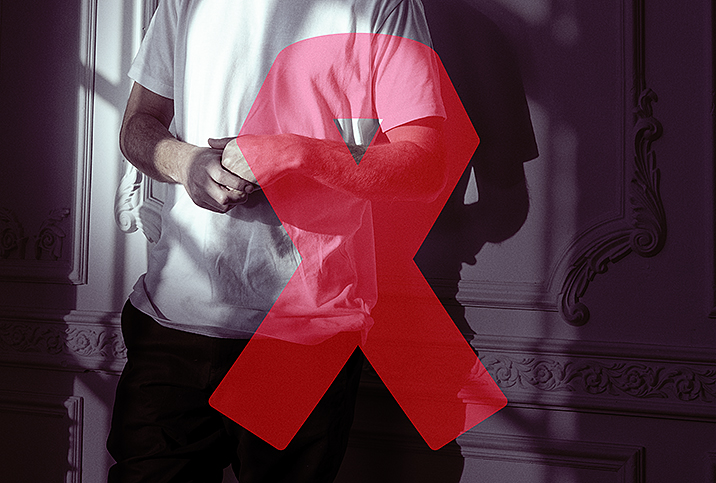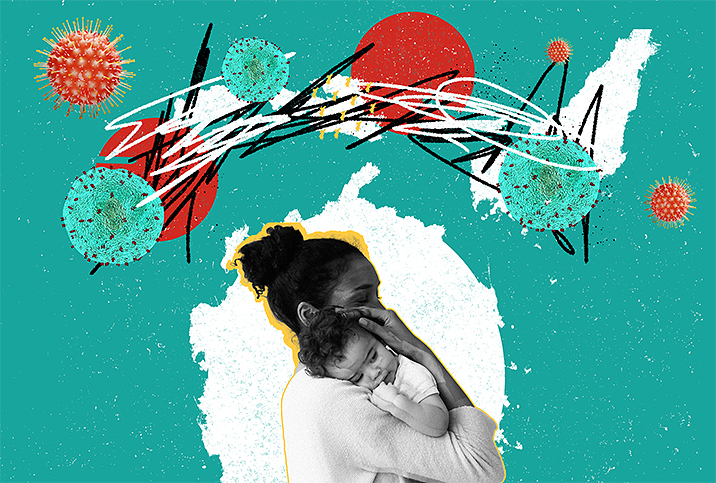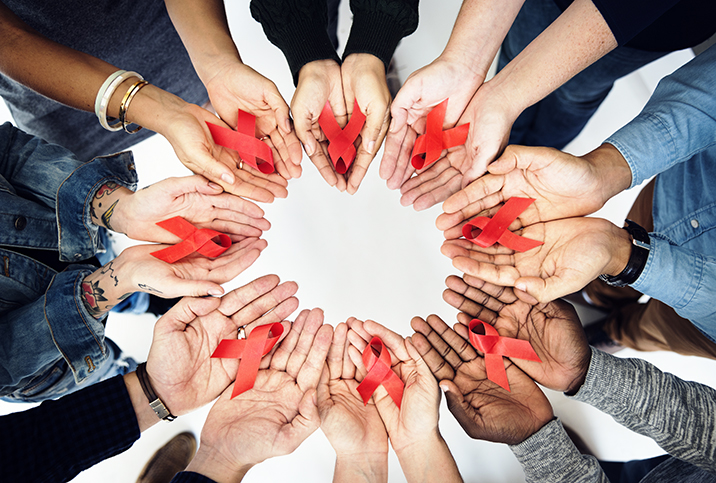Why America Should Thank Madonna and Pop Culture for Great Sex

One of my favorite childhood memories is of my first glimpse of MTV from a wooden console television. It was probably in 1987, and my friend's mom let us wear pieces of her lingerie so we could pretend to be Madonna as we danced on the surface of propped-up hard suitcases, our makeshift stage. We took wooden spoons and covered them with tin foil to make them look like microphones.
It was the first time I felt provocative and free, in the way an innocent 7-year-old self could.
This was the effect Madonna had on everyone then. She made you feel comfortable with your body and sexual identity, and promoted feeling sexy during a time in America when people simply weren't.
Causing a commotion
I love that I was born in 1979 and can call myself a Xennial—the American kids born between 1977 and 1983-ish. We're a pocket generation who possess a more optimistic outlook on life, coupled with the inherited cynicism of our Boomer parents. We knew what it was like to live unplugged, but we were the first kids to take the leap into the digital world. Some claim our little sub-gen is responsible for the entire digital boom.
Our childhoods were somewhat feral, frequently unsupervised and soaked with the kitsch of an explosive pop culture revolution. The '80s were littered with rich nostalgia: For example, milestones in people's lives are sometimes marked by which "Star Wars" movie episode was released in the same time frame—and I mean the originals. However, there was a dark side to the '80s and '90s. We grew up during the HIV/AIDS epidemic, a crisis that, for some of us, was just as confusing and terrifying as COVID-19. The sexual revolution of the '60s and '70s was seemingly over. Or was it?
Fear and loathing
I recall the beginning of the HIV/AIDS epidemic vividly. Children across the nation were learning about it in school by way of "The Ryan White Story," a TV drama directed by John Herzfeld that told the story of a teenage hemophiliac who contracted the disease from contaminated blood and was expelled from middle school for having the infection.
I remember information about HIV/AIDS coming out scattered, to say the least. Along with others in my class, I became ignorantly fearful of drinking fountains and wouldn't share food with my friends in the lunchroom. We didn't know any better. This was another one of those things you didn't ask your parents about, either—all you'd get were awkward and uncomfortable conversations with little information.
Unfortunately, this was how I learned about the gay community for the first time. We were told HIV/AIDS targeted gay men, and this misguided conclusion had catastrophic consequences.
In the '80s, HIV/AIDS was a death sentence for many, making the name of the virus and subsequent disease absolutely terrifying. In 1991, one of my hometown heroes, Magic Johnson, announced to the world he was HIV-positive; later that month, Freddie Mercury of the legendary band Queen succumbed to an AIDS-related illness. This was also the same year I began sex education at school.
A "no-sex" education
In an attempt to promote abstinence, our teachers told us if we contracted an STD, we could lose the ability to bear children, it would ruin our lives and we could die. Sure, there was some truth to all of that, but metaphorically it was like having a finger waved in your face by a helicopter parent.
In the mid '90s, there was no explanation on how people infected with HIV lived with the virus, and pre-exposure prophylaxis (PrEP)—the various medicine strategies for prevention—wasn't around. All we were told was if you become HIV-positive, you were likely going to perish.
This may have contributed to the generally successful "safe sex" concept campaign of the 1990s. Arthur Landin is the clinical operations coordinator for Texas Health Action, a nonprofit organization dedicated to providing access to culturally affirming, quality health services in a safe and supportive environment with an expertise in serving LGBTQIA+ people and people impacted by HIV. He's seen and continues to see the implications of this crusade firsthand.
"My thoughts on the safe sex movement have grown and evolved since those words entered the American vocabulary," Landin said. "The message of safe sex came about when we were all experiencing the AIDS epidemic. Scientists were working on learning as much as they could about the virus. The message then was about having safe sex to minimize transmission. Now, it's 'safer sex' practices and the U=U (Undetectable=Untransmissible) message of today. There will always be work to be done as we continue to learn about our respective bodies and minds and those of our partners."
As part of sex ed in the early '90s, I was presented with various blown-up images on an overhead projector of late-stage genital warts, crabs, herpes and other STDs. The images were horrifying. Today, you'd have to type in something like "advanced stage STDs" into a Google Image search to find these horrifying images. (I don't recommend you do.)
Of course, the curriculum was designed to scare students into abstaining from sex rather than encouraging students to practice safe sex and that choosing to abstain is okay. In my world, when I think of effective safe sex talk, I mainly think of pop icons like TLC, and the Arsenio Hall and Magic Johnson educational film "Time Out: The Truth About HIV, AIDS, and You."
Celebrities of the '90s became the medium through which to promote the safe sex movement more effectively. They knew how to reach the masses and found importance in the message, especially because many of their colleagues in the entertainment industry were falling ill.
I wasn't the only one unlearning sex stigma from my favorite celebrities. Carol Queen, Ph.D., sexologist and author (with Shar Rednour) of "The Sex & Pleasure Book: Good Vibrations Guide to Great Sex for Everyone," explained the phenomenon.
"In the absence of good sex education—and let's face it, vastly more people have gotten terrible, meh or no sex education rather than good sex education—people turn to cultural sources to learn and process sexuality-related issues and questions," Queen said. "This can include porn (which wasn't made to be used that way usually, but what the hell, people turn to it anyhow), our pop stars' musical messages and lived experiences, rom-coms and commercials. We receive our sexual messages from all over the place."
Touched for the very first time
"Like a Virgin," a Madonna single released in October 1984, raised the eyebrows of conservative Christians in the U.S., who promptly sought to ban its album of origin and Madonna completely. In the face of this prejudice, Madonna's performance of the song at the 1984 MTV Music Awards remains one of the most memorable and groundbreaking performances in pop music history. It was as if Madonna had opened up her bedroom door, allowing the world to take a peek at who she really was.
She wasn't overtly sexual onstage—many artists have since surpassed her in graphic nature—but the subtlety and mystery behind her performance teased and aroused audiences. We never saw Madonna having sex, but we had a damn good idea of how great she'd be at it.
She was totally unapologetic when it came to her sexuality, putting her at war with critics (usually conservative) who insisted she should tone down her act. Madonna continued to push boundaries, and even during the HIV/AIDS crisis, people wanted more.
"Madonna has most definitely been a trailblazer, and an indelible icon in pop culture at every stage of her career," Landin said. "Although I was only 15 at the time and didn't even know what a virgin or a 'boy toy' was, I was hooked enough to ask questions and start a conversation, and I have never stopped."
She continued her rise to stardom with every new album release, including an informational insert for her album "Like a Prayer" titled, "The Facts About AIDS." Landin added that Madonna has long been an ally to the LGBTQIA+ community, a donor for amfAR (the American Foundation for AIDS Research) and she created the Raising Malawi foundation, which was founded to benefit children orphaned by AIDS in Malawi, Africa.
"I am not positive that I would say Madonna alone was the trailblazer," Queen said. "But if you'd asked me at the time, I certainly might have said yes. Madonna was clearly interested in sexuality past the point that most pop stars focus their music and persona in a sexualized direction—she really stepped up to make sex part of her brand. But I need to emphasize that there were other unexpected participants in this cultural discourse—like U.S. Surgeon General C. Everett Koop, who mailed a brochure to every American household warning of HIV and explaining safer sex."
"The fundamental role of Madonna was to introduce ideas and attitudes that were already present in alternative communities," Queen added. "This, like her role in appropriating queer ballroom culture, was sometimes an issue in those communities. However, the mainstream was fascinated by her, and that had a real effect on which ideas they were exposed to."
Shaping the future of sex
Love or hate Madonna, I can't help but wonder what the state of sex and sexual identity would be like in our current culture if she'd not been courageous enough to keep breaking boundaries. There's no doubt that attractive celebrities hold a significant amount of power and influence over people's ideals toward sex. The biggest artists today, and their biggest hits, are often sexually driven, following the path Madonna paved.
"I think people forget how prevalent outright censorship in pop culture was in the days before the internet," said Steve Paris, ARPN, FNP-C, a provider at Kind Clinic, a sexual health clinic in Austin, Texas. "The late '80s and early '90s were supercharged with artists like Madonna, Salt-N-Pepa and 2 Live Crew pushing boundaries in ways that seem quaint today. To me, Madonna has been all about sexual empowerment and being a sexual outlaw in a time when sex for gay men was considered deadly and shameful. Still, she gave us power through her music—her music and attitude were beacons during some very dark times. Fast-forward about 30 years, and we have Janelle Monae bringing songs like 'Pynk' and Cardi B with 'WAP,' just owning their own sexual power."
As much as we may think music these days is all about sex, there are still stigmas to unlearn.
"Seeing my 17-year-old openly queer niece just beaming with delight singing along to 'Pynk' gives me hope about the positive influence pop culture can have," Paris added. "Without artists like Madonna breaking barriers to help create a more sex-positive popular culture, I don't think we would be where we are at now."
Speaking as that optimistic Xennial, I'd say the future looks bright, exciting and very colorful.
Thank you, Madonna.


















